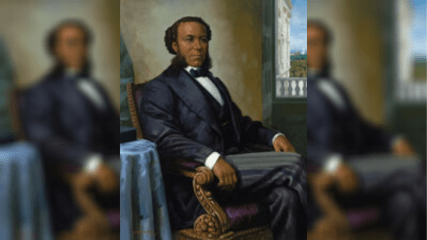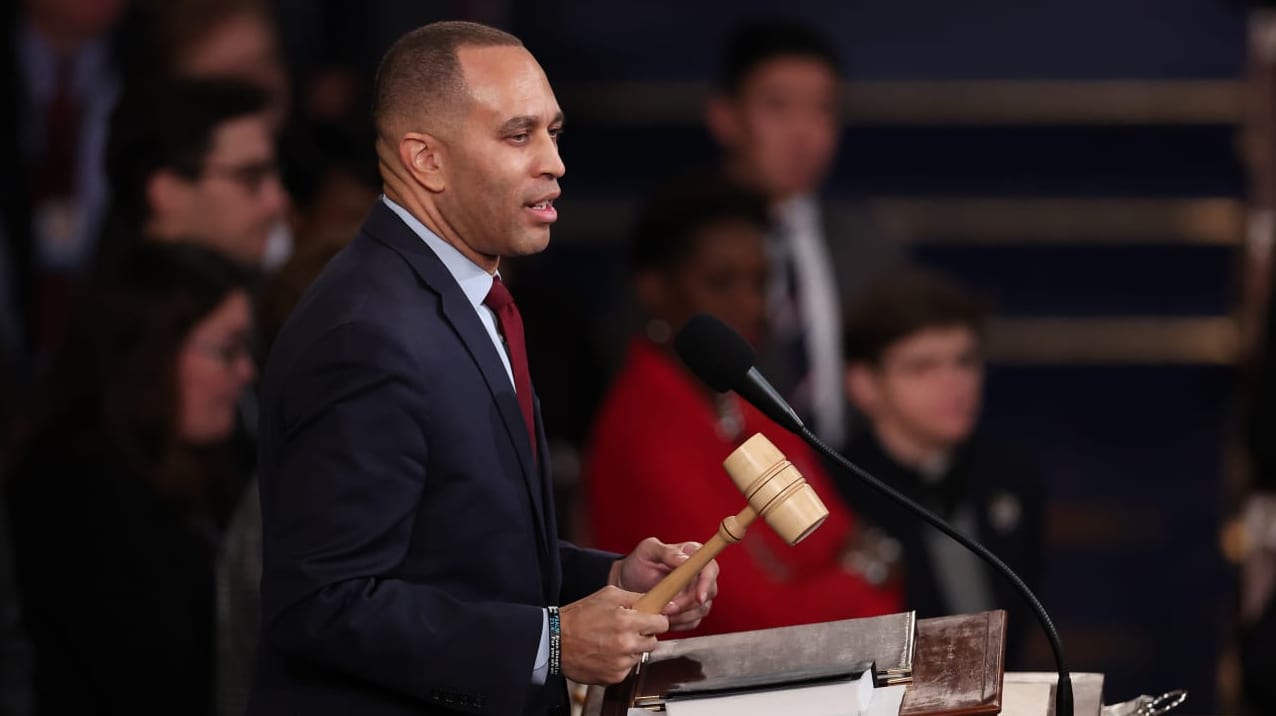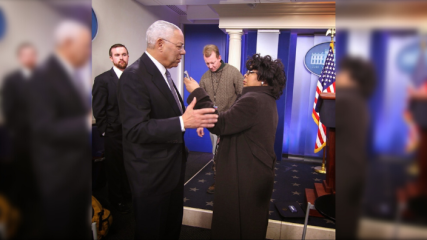Most influential Black politicians in American history
From the first Black president to the first African American woman ever elected to the United States Congress, Black people have made considerable gains – and helped to change the face of U.S. politics as we know it.
Historically, Black political power has not come easy in the United States. The institution of slavery and systems of racial inequality – from Black Codes to Jim Crow – restricted the civil and political rights of African Americans for centuries.
But through activism and great sacrifice, Black Americans have built political power over time. That power is not more exemplified than in Washington, the nation’s capital. From the first Black president to the first African American woman ever elected to the United States Congress, Black people have made considerable gains – and helped to change the face of U.S. politics as we know it.
Here is theGrio’s list of most influential Black politicians in American history.
Hiram Rhodes Revels
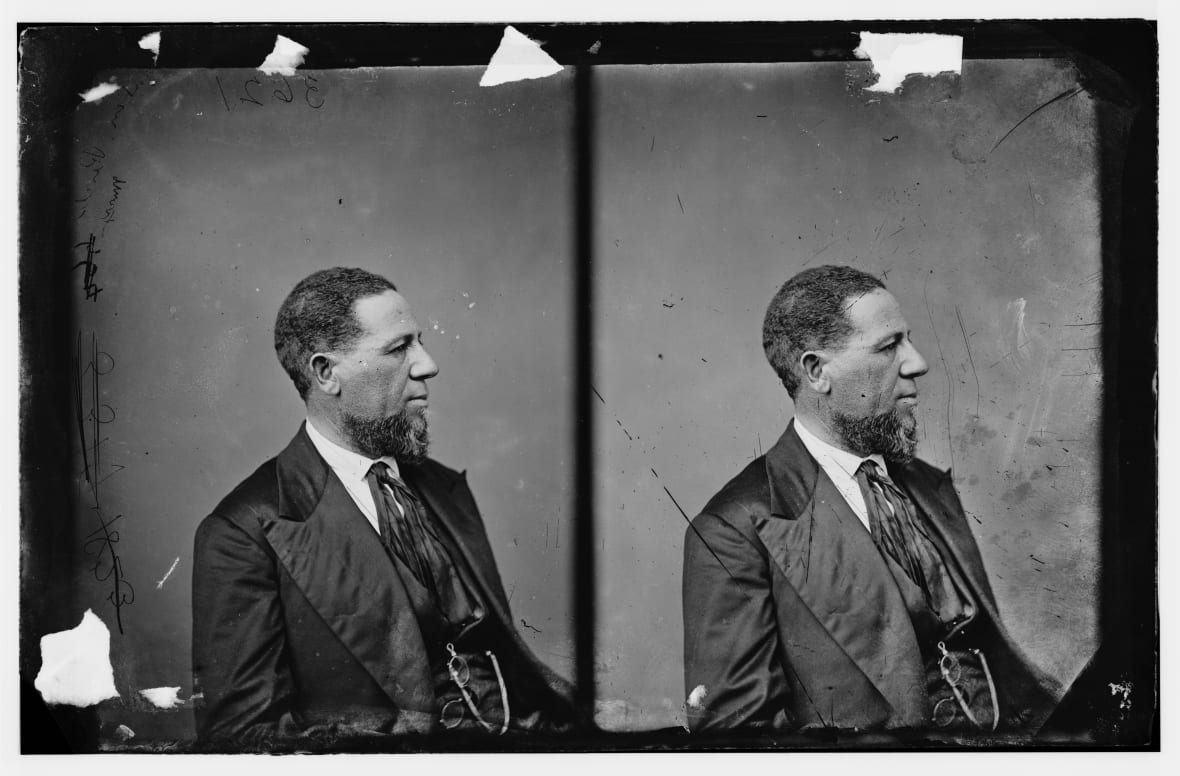
Hiram Rhodes Revels broke political barriers in 1870 when he was elected to the United States Senate, becoming the first African-American person to enter either chamber of Congress. Revels, born in North Carolina, was a minister in the African Methodist Episcopal Church. During the Civil War, he served as a chaplain for the United States Army. He later relocated to Mississippi and served in the state Senate.
During Reconstruction, the Mississippi State Legislature voted for Revels to represent the state in the U.S. Senate. The Republican politician’s historic election did not come without opposition from white southern Democrats, who challenged the constitutionality of his election given the fact that Mississippi was under military rule and “lacked a civil government to confirm his election,” according to U.S. Congress records. Democrats at the time also argued that Black people had only gained citizenship two years prior under the 14th Amendment and that he needed citizenship for at least nine years to serve in the Senate.
Revels was serving out the remainder of a term left vacant during the Civil War and remained in the U.S. Senate for a little over a year before his term expired. During his time in the Senate, he advocated for the eradication of segregation statutes and promoted the civil rights of Black Americans. He also notably caused controversy when he nominated a Black candidate to the U.S. Military Academy at West Point.
Joseph Hayne Rainey
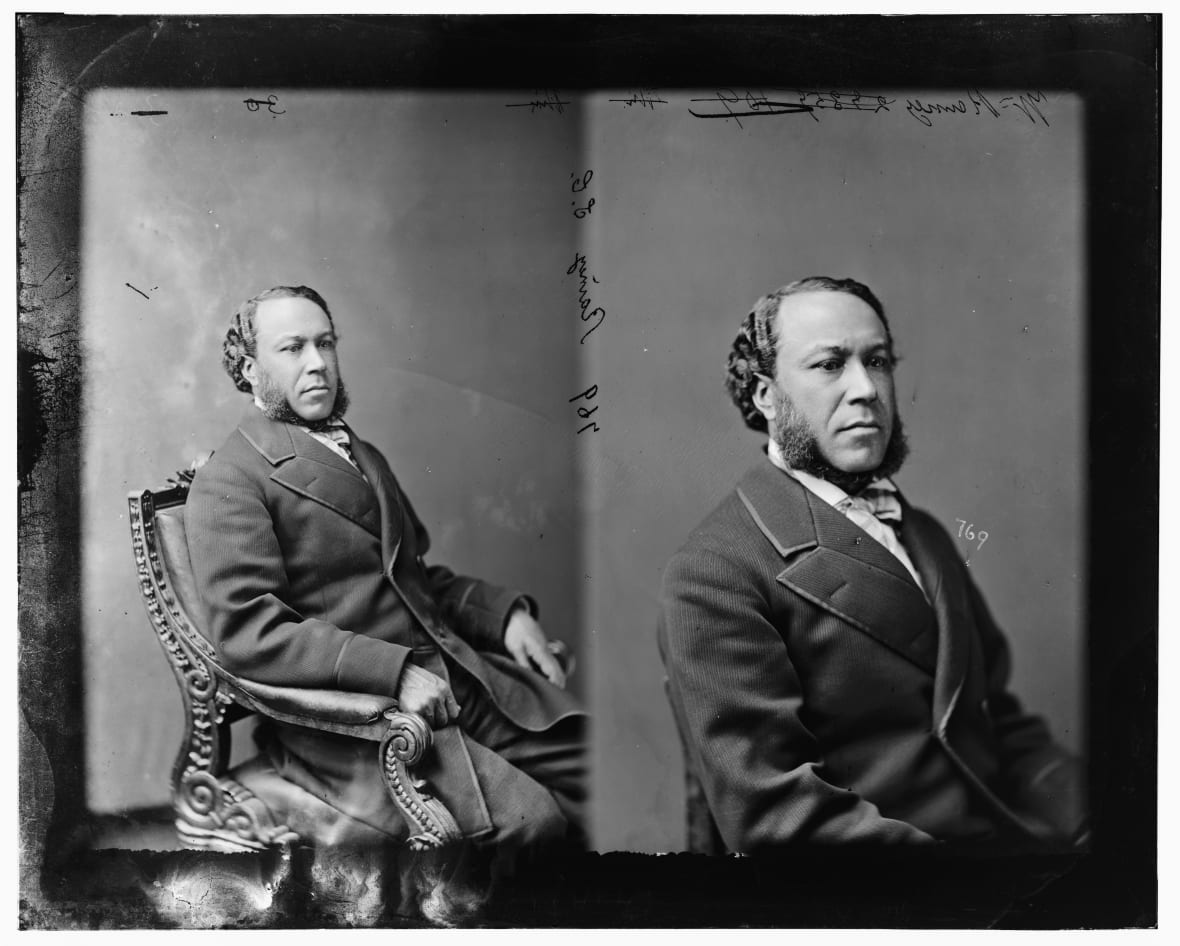
Joining his fellow Republican Party member Hiram Revels in Congress in 1870, Joseph Hayne Rainey was the first African American elected to the U.S. House of Representatives, representing South Carolina.
The son of Bermudian immigrants, Rainey worked as a barber before he was forced by the confederate army to build defenses in the American Civil War. During the war, he and his wife escaped to Bermuda, where he operated a barbershop and his wife owned a dress store. They returned to the United States in 1866 when the war ended. Rainey then served in the South Carolina Senate before being elected to the U.S. House of Representatives to serve out a vacant seat and was later elected for four full terms.
While in Congress, Rainey served on the House Select Committee on the Freedmen’s Bank and was the first African-American to preside over the House of Representatives from the Speaker’s chair. Rainey’s time in Congress marked the beginning of the first emergence of Black political power in Congress. During Reconstruction, he was one of 13 Black members of Congress. They would remain in office until Democrats gained back control in the former confederacy and began eradicating the civil rights of African-Americans, leading to voter suppression and a mass exodus of Black representation in Congress.
Shirley Chisholm
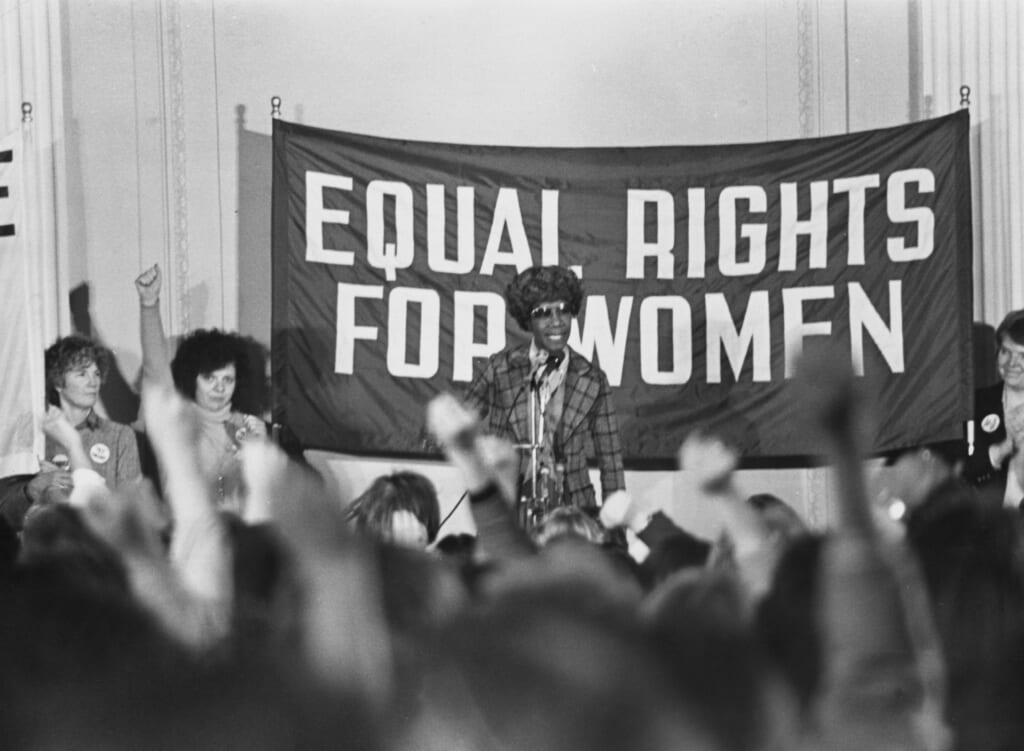
In 1972, Shirley Chisholm became the first woman and first Black person to run for president through a major party. At the time, Chisholm was already a giant in Black politics as the first Black woman elected to Congress in 1968.
Chisholm’s campaign slogan “Unbought and Unbossed” probably best captures the New York congresswoman’s flare and determination to serve on her own terms. She used her public microphone to champion not just Black rights, but women’s rights and was a founding member of the Congressional Black Caucus and Congressional Women’s Caucus. Chisholm also spoke out against the Vietnam War in her first House floor speech in 1969.
As a presidential candidate, her unabashed style as a politician resulted in pushback from the status quo in Washington, including among her fellow Black male lawmakers – signaling an inability for women to overcome the weight of sexism in U.S. politics.
While her campaign for president was largely seen as symbolic, today she is regarded as one of the most influential politicians in U.S. history who paved the way for the likes of former President Barack Obama, Vice President Kamala Harris, and presidential candidate Hillary Clinton.
John Lewis
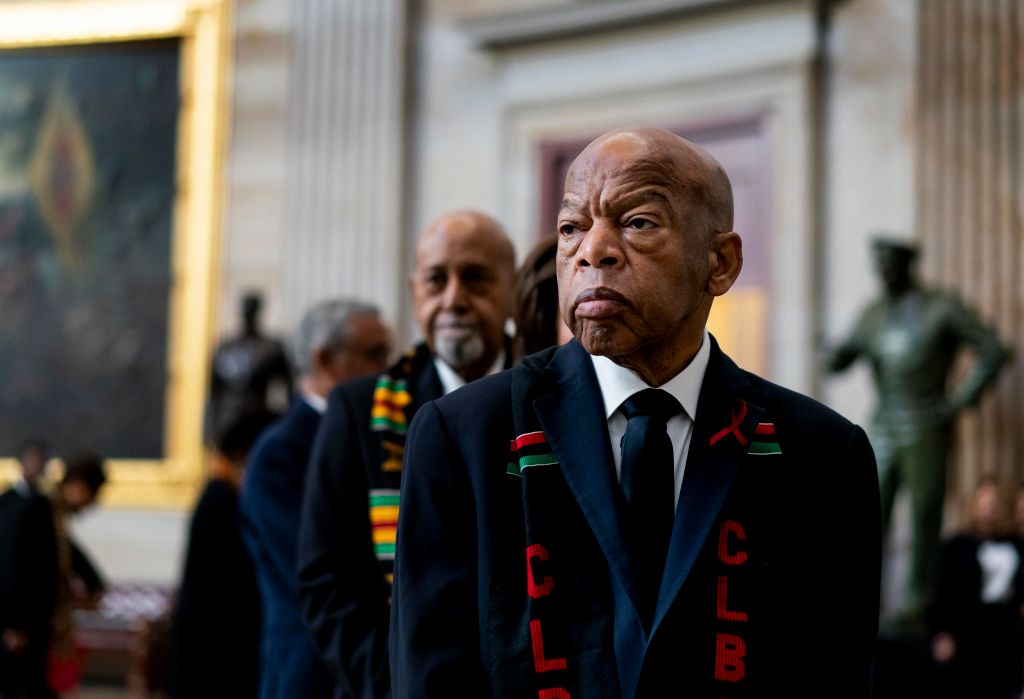
The legacy of the late John Lewis runs deeper than American politics. Before he was elected to the U.S. House to represent Georgia’s 5th Congressional District, Lewis was a civil rights giant who fought for racial equality under the mentorship of the Rev. Dr. Martin Luther King Jr. and nearly lost his life during the 1965 Selma to Montgomery march for voting rights, which later became known as Bloody Sunday.
After being inspired by King and his leadership in the civil rights movement in the early 1960s, Lewis was involved in organizing and civil disobedience at a young age. He was arrested and jailed many times for his activism and quickly rose as a leader for his generation. Lewis served as head of the Student Nonviolent Coordinating Committee, or SNCC, of which he was a founding member. Lewis was also one of the 13 original Freedom Riders who protested segregation on public buses and helped organize the 1963 March on Washington.
While in the U.S. House, where he served for 33 years, Lewis continued his activism – including protesting apartheid in South Africa and being arrested outside that country’s embassy in Washington. Lewis was also instrumental in the creation of the National Museum of African American History and Culture; he introduced legislation for its construction over the span of 15 years before it was signed into law by former President George W. Bush in 2003.
Today, Lewis’ name is a rallying call in Washington as the most recent legislation on voting rights in Congress is named after him.
Andrew Young
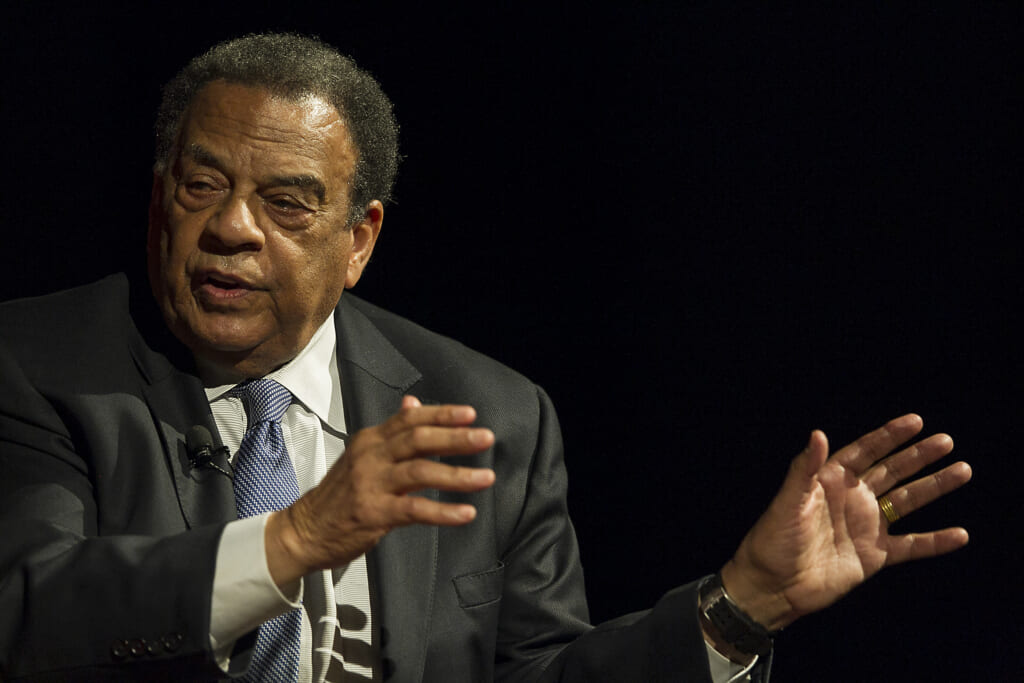
A former pastor, Andrew Young was a leader in the civil rights movement before running for public office and later breaking down barriers in the U.S. diplomacy community.
Young served as executive director of the Southern Christian Leadership Conference and was a close confidant to Martin Luther King Jr. He was notably with King when he was assassinated in Memphis, Tennessee, in 1968. Young embarked on a political career, first running for Georgia’s 5th Congressional District unsuccessfully in 1970. He won the U.S. House seat two years later and was reelected twice.
While in Congress, Young helped sponsor legislation to establish the U.S. Institute for Peace – a precursor to his international work in building peace across the globe. In 1977, Young retired from Congress and was appointed by President Jimmy Carter to become the first African American to serve as U.S. Ambassador to the United Nations. After his ambassadorship, he served as mayor of Atlanta and later served in many roles in advocacy and academia.
Jesse Jackson, Sr.
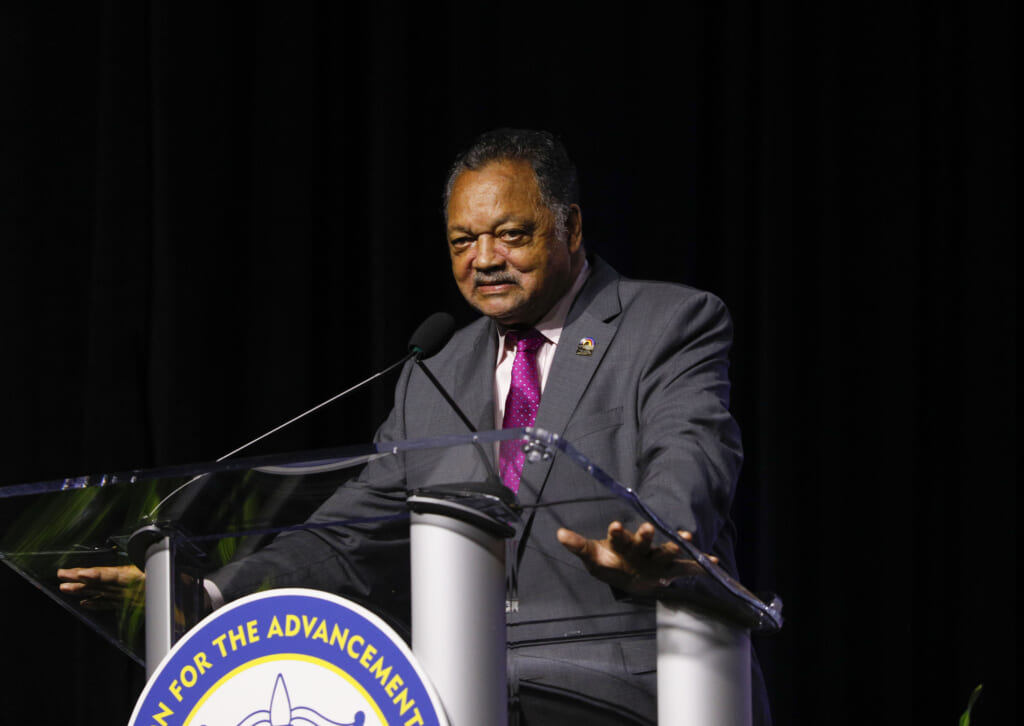
Minister and civil rights activist Jesse Jackson Sr. wasn’t the first Black person to launch a campaign for U.S. president, but he is considered the first candidate to have a legitimate shot at clinching the Democratic Party’s nomination.
Prior to his two bids for the White House, Jackson was a prominent civil rights leader who worked alongside Martin Luther King Jr. and ran the Chicago branch of the Southern Christian Leadership Conference. In the 1970s and 1980s, Jackson founded and operated his own nonprofit organizations: Operation PUSH and the Rainbow Coalition.
In 1984, Jackson became the second African American to run for president. While his candidacy was initially dismissed as a fringe campaign, he would ultimately finish third in the Democratic primaries with more than 3 million votes. He ran again in 1988 and doubled the total votes he received in the previous presidential election. Following his unsuccessful bids for president, Jackson went on to continue influencing Democratic politics from within the activist community. He also built a family legacy of politicians. His eldest son, Jesse Jackson Jr., was elected to Congress in 1995, and his younger son, Jonathan Jackson, was elected to Congress in 2022.
John Conyers Jr.
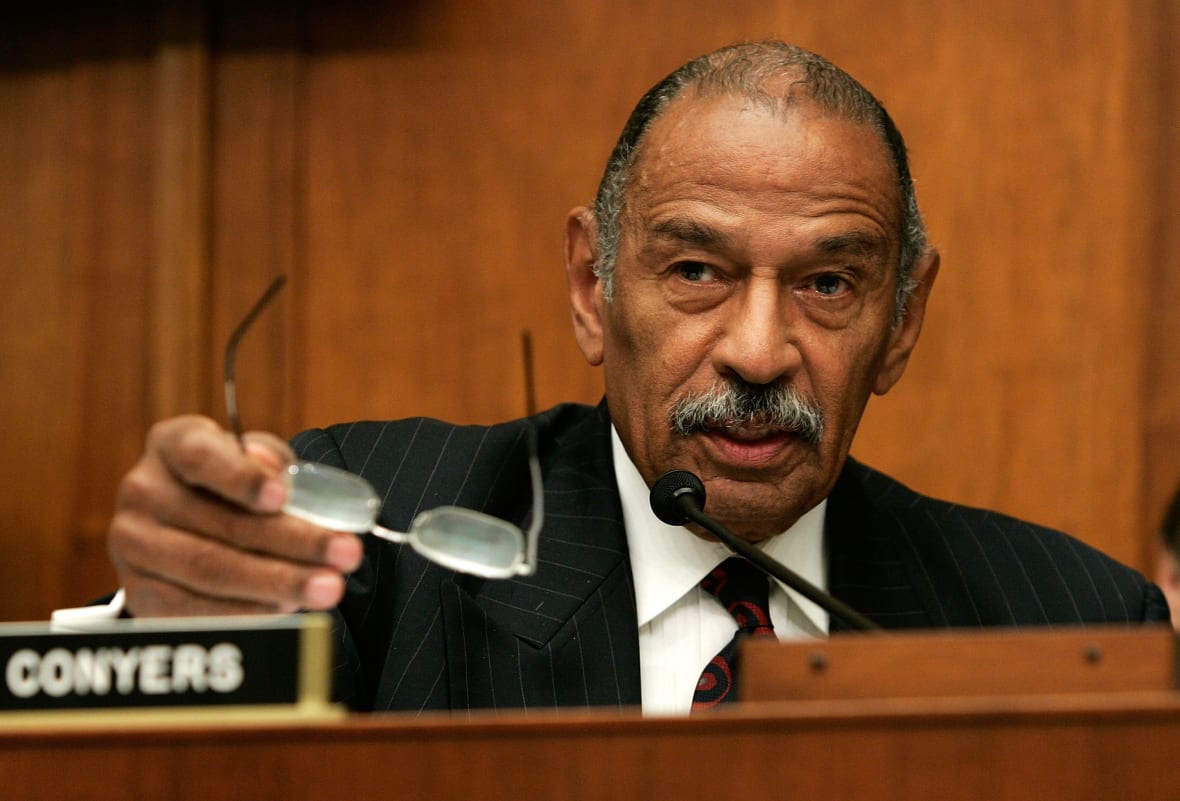
John Conyers Jr. broke major barriers for African-Americans in the halls of Congress and beyond while serving in the U.S. House of Representatives for more than 50 years on Capitol Hill. The Michigan lawmaker, who died in 2019, became the first Black member of Congress to introduce legislation supporting reparations – a bill known today as H.R. 40 that remains to be passed – and the first bill to make Martin Luther King’s birthday a federal holiday.
Conyers, a Detroit native, was the first African-American to serve on the powerful House Judiciary Committee and the first African-American to become Dean of the House. He was also a founding member of the Congressional Black Caucus. Conyers’ long run in Congress came to an end in 2017 during the #MeToo Movement when it was disclosed that, two years prior, he used funds from his congressional office to settle a sexual harassment charge brought by a former female staff assistant. He later resigned.
Carol Moseley Braun
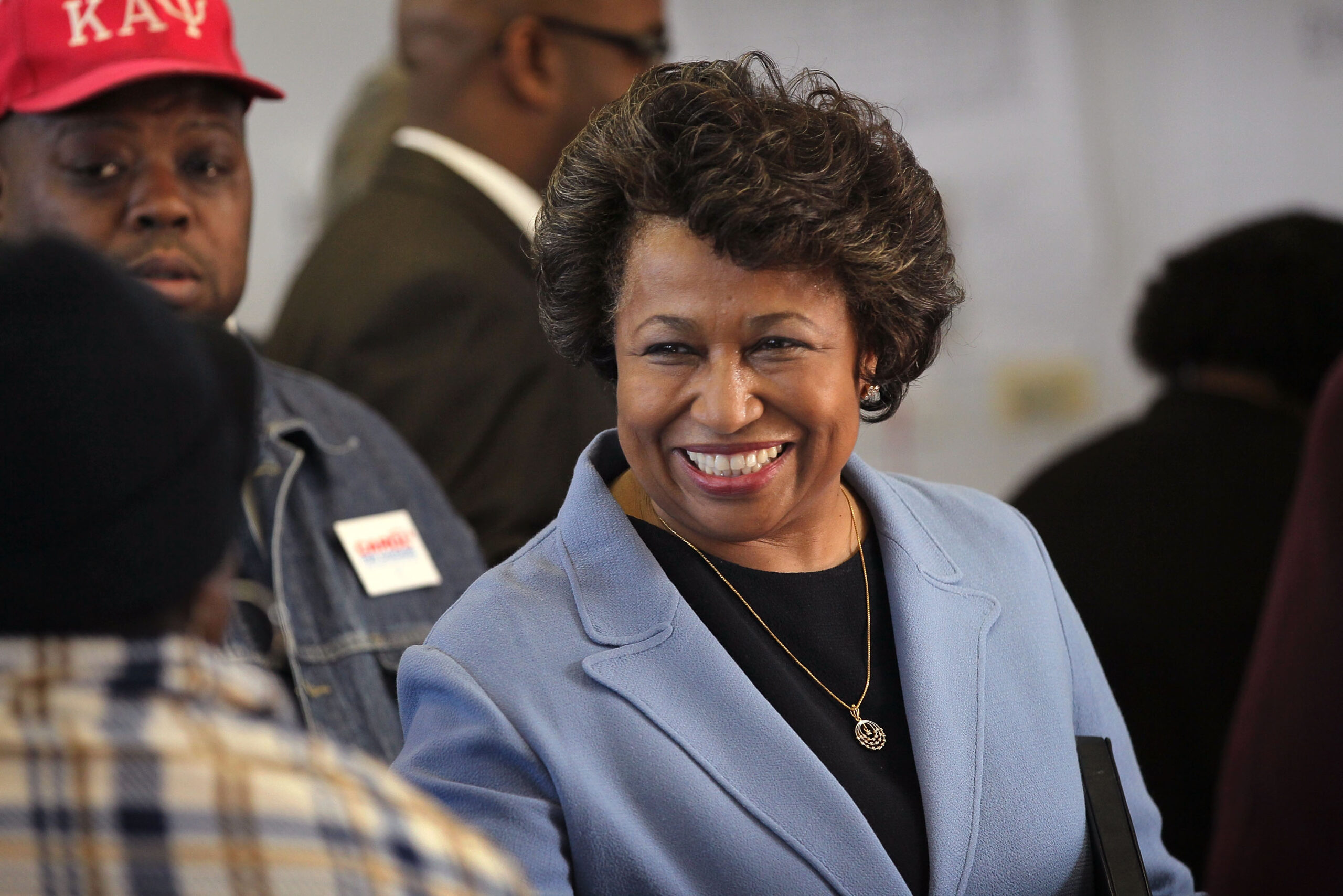
Before there was Kamala Harris or Barack Obama, there was Carol Moseley Braun. Moseley Braun has the distinction of becoming the first Black female to be elected to the U.S. Senate, the first African American from the Democratic Party elected to the Senate, and the first Black American to serve in the U.S. Senate from the state of Illinois.
Before her historic election to the Senate, Moseley Braun served as Ilinois state representative and a Cook County executive. Moseley Braun, who came of age during the Civil Rights Movement, previously worked as a lawyer. She served as an assistant U.S. attorney in Chicago, primarily focusing on work in housing, health policy, and environmental law.
While serving in the Senate, Moseley Braun notably defied an unofficial congressional rule that women had to wear dresses or skirts. In 1993, she and fellow U.S. Senators Barbara Mikulski, D-Md., and Nancy Kassebaum, R-Kan., intentionally violated the rule by wearing pants. Later that year, the rule was amended to allow women to wear pants, as long as they also wore jackets.
Despite breaking glass-ceilings for women and African Americans in politics, Moseley Braun only served one term in the U.S. Senate. She would later be nominated by President Bill Clinton to serve as U.S. Ambassador to New Zealand. She also embarked unsuccessful campaign runs for U.S. president in 2004 and Chicago mayor in 2010. In 2023, the political trailblazer was nominated by President Joe Biden to serve as chair of United States African Development Foundation.
Colin Powell
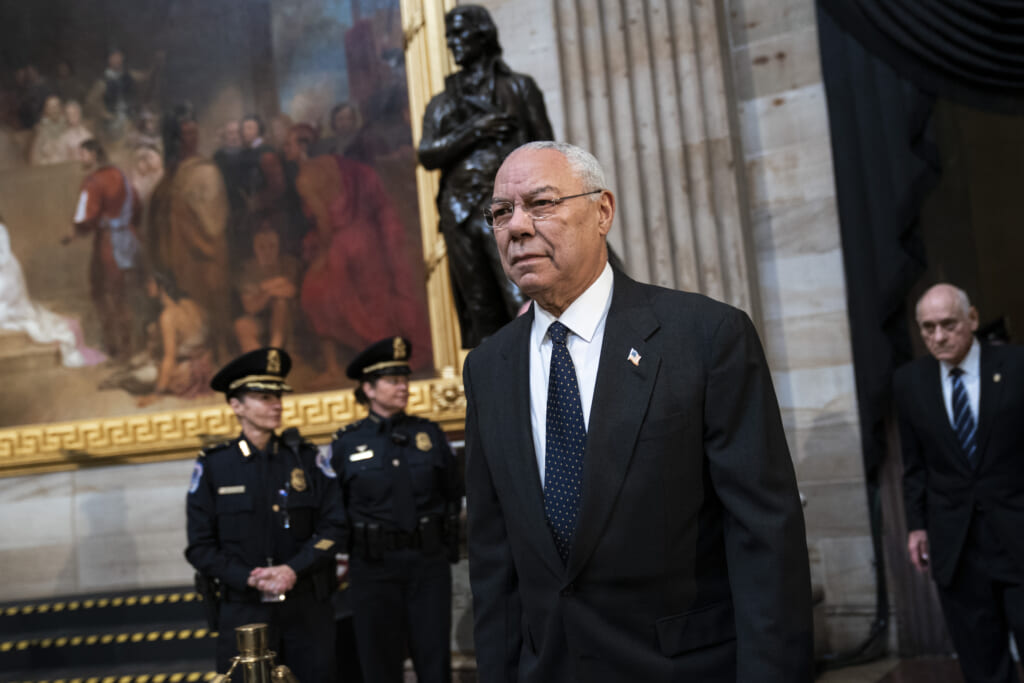
Colin Powell was a trailblazer in national security as the first African-American to become U.S. secretary of state. He was appointed by President George W. Bush in 2001 and served for four years.
The 35-year Army veteran used his military and foreign policy expertise to serve in crucial roles such as deputy national security advisor and national security advisor from 1987-1989 under the Reagan administration. Before being the first Black secretary of state, Powell was the first Black person to serve as chairman of the Joint Chiefs of Staff, during the Bush administration. Powell’s high-ranking national security positions were rare and groundbreaking on the domestic and international stage, where white men historically dominated.
The country and the world were able to witness for the first time an African-American lead on diplomacy and foreign policy – something that led many to call for his run for president. The four-star general ultimately decided not to run for higher office due to a lack of desire to get involved in politics.
Powell is also credited with playing a role in the historic election of Barack Obama as the nation’s first Black president. During the 2008 presidential election, Powell endorsed Obama. He also slammed false assertions that suggested that Obama was Muslim. As a Republican, it reaffirmed Powell’s reputation as a leader who put the country before political party.
Hakeem Jeffries
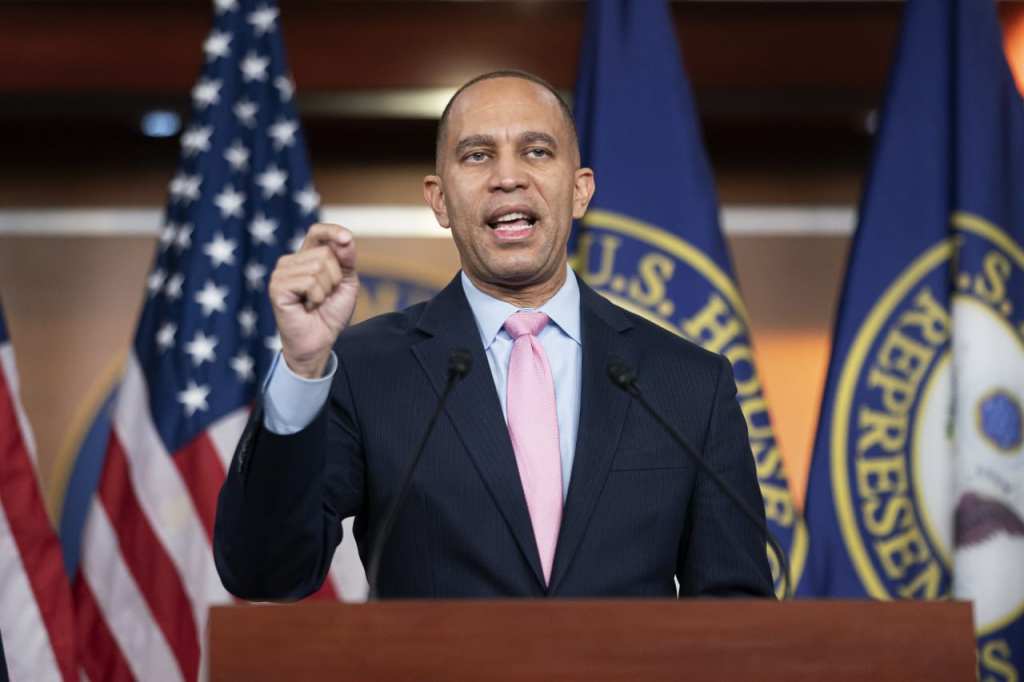
On Jan. 6, 2023, U.S. Rep. Hakeem Jeffries, D-N.Y., made history when he was elected by House Democrats to serve as minority leader in the U.S. House of Representatives. Jeffries, who has served in U.S. House since 2013, is the first African American to lead a major political party in either chamber of Congress.
After being passed the baton by U.S. Rep. Nancy Pelosi, D-Calif., the former longtime House speaker, Jeffries represents the next generation of leadership for the Democratic Party. While his party is presently in the minority in the U.S. House, Jeffries has been praised by Democrats for his leadership, including keeping the party united against a Republicans, who for the first time removed their House speaker, U.S. Rep. Kevin McCarthy, R-Calif., from office. The House Republican majority has also had the least productive legislative sessions in decades.
Democrats, led by Jeffries, are hoping to take back the House majority after the November 2024 elections. If they are successful, Rep. Jeffries will make history yet again as the first Black American to be elected House speaker.
Barack Obama

It goes without saying that Barack Obama is one of the most popular and famous politicians in American politics. Before his historic rise as the first Black president of the United States, Obama blazed trails for Black people in academia and politics.
As a student at Harvard Law School, he served as the first Black president of the prestigious Harvard Law Review. He was also the first African-American man elected to the U.S. Senate in the state of Illinois.
Where other Black politicians tried and failed at running for the highest office in the land, Obama managed to capture the hearts and minds of millions of Americans with his charisma and message of hope and change. As president, he signed into law the landmark Affordable Care Act – known at the time as Obamacare – which to date has led to a 40% decline in the uninsured rate for Black Americans. He also appointed the first Black U.S. attorney general and Black woman attorney general; and the first African-American secretary of homeland security.
Among other notable actions, Obama also convened the first U.S.-Africa summit, was the first president to publicly support same-sex marriage and LGBTQ equality, and created through executive order the first of its kind police task force to improve American policing after the deadly police shooting of Michael Brown in Ferguson, Missouri.
While Obama’s presidency was polarizing, it no doubt shifted the state of politics and the role of Black leadership on the biggest stage in the world: The White House.
Kamala Harris

Vice President Kamala Harris’ entire career has been filled with breaking glass ceilings for women and women of color. Before being elected the first Black and first South Asian vice president in United States history, Harris served as the first Black U.S. senator in California, the first Black California attorney general, and the first Black district attorney of San Francisco.
As a graduate of Howard University and member of Alpha Kappa Alpha Sorority, Inc., Harris is the first vice president to graduate from an HBCU and to be a member of a historically Black greek letter organization, also known as Divine Nine. She has used her role as VP to bring more visibility to the legacy and value of HBCUs and Divine Nine organizations.
As vice president, following in the legacy of former President Obama, Harris has established a renewed representation of Black power both domestically and abroad. Her unique role as an African-American and as a Black woman has been leveraged in the Biden administration’s effort to improve U.S. relations with African and Caribbean nations, as well as taking the lead on the White House’s efforts to protect reproductive rights after the Supreme Court overturned the federal right to an abortion. Harris has also used her powerful position to continue advancing policy issues she worked on as a U.S. senator, from addressing Black maternal health to investing in Black and minority-owned businesses.
TheGrio is FREE on your TV via Apple TV, Amazon Fire, Roku and Android TV. Also, please download theGrio mobile apps today!
